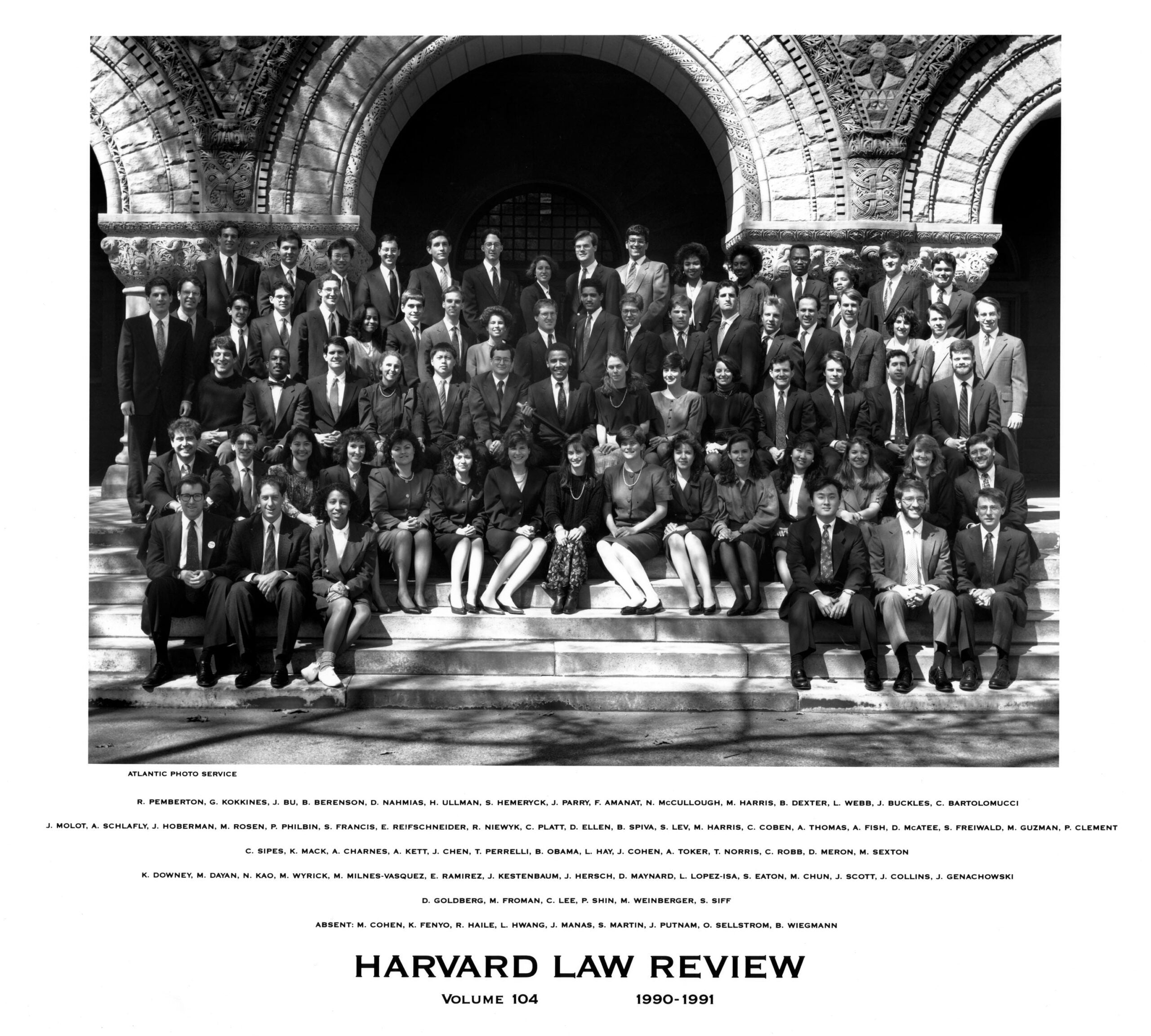On Jan. 4 the Harvard Law Review published The President’s Role in Advancing Criminal Justice Reform, an article by President Barack Obama ’91 who was president of the Law Review during his time as a student at Harvard Law School. Current Law Review President Michael Zuckerman ’17 penned the following reflection for Medium (published on the official White House channel) on the president’s piece — the editorial team’s experience, the honor of publishing the first Law Review article by a sitting president, and his own personal take on law and criminal justice reform.
Publishing The President’s Role in Advancing Criminal Justice Reform
Since its founding in 1887, the Harvard Law Review has been a student-run journal dedicated to advancing conversation about the law. Doing this work is a privilege — it offers us a collaborative education in legal thinking, writing, and editing, as we begin our own legal careers.
We are enormously proud to publish The President’s Role in Advancing Criminal Justice Reform, which explores vital questions of crime, punishment, and redemption. These issues are central to any legal system, and a rising chorus from across our political spectrum emphasizes how much they matter now. As we consider the future of criminal justice in America, understanding our system’s complex web of stakeholders and decision-makers is crucial for charting the best path forward.
The President’s piece offers a kind of map: a guide to today’s complicated, varied legal terrain, and a set of tools to help navigate and shape it. The President makes the case for reform, details traditional and novel ways in which his Administration has pursued reform from the federal to the local level, and offers a vision for the road ahead. Through it all, the piece helps us better understand the many interlocking roles that a modern president can play — and how those roles can in turn impact the many interlocking pieces that comprise American criminal justice.
For our team, huddled over our computer screens on the eve of final exams this past December, publishing the President’s piece provided an editing experience that we will never forget. We were struck, of course, by the honor of publishing the first work of legal scholarship by a sitting president — and in this case, a president whom we’re proud to count among the alumni (and former presidents) of our journal. But our excitement about the piece also runs much deeper: At a time when criminal justice has come to the fore of the American legal conversation, the piece provides a look at the field from an author who brings an extraordinary vantage point.
The work also follows in a rich tradition of scholarship shaped by an author’s lived experience of the law. Many of legal scholarship’s most celebrated pieces have come from authors who drew not only from intellectual reasoning, but from practical engagement as well. And we work hard as student editors not only because the work is theoretically challenging, but also because it advances ideas that can have a real-world impact on issues that are important to us.
Speaking for myself, as well, this piece has special resonance. Sixteen years ago, as a thirteen-year-old growing up in New Jersey, I was a juvenile defendant who had pled guilty to criminal trespassing. Now I’m the president of the Harvard Law Review, and I’ve just had the privilege of helping to publish an article on criminal justice reform by the President of the United States.
That would not have happened for me without a second chance — a second chance that many people, and especially people who don’t look like me, don’t get. So it is moving for me personally to be able to help publish The President’s Role in Advancing Criminal Justice Reform, a piece about the importance of second chances, and how to make real the promise of redemption, on which so much else rests.
This piece was originally published on Medium on January 4, 2016.
